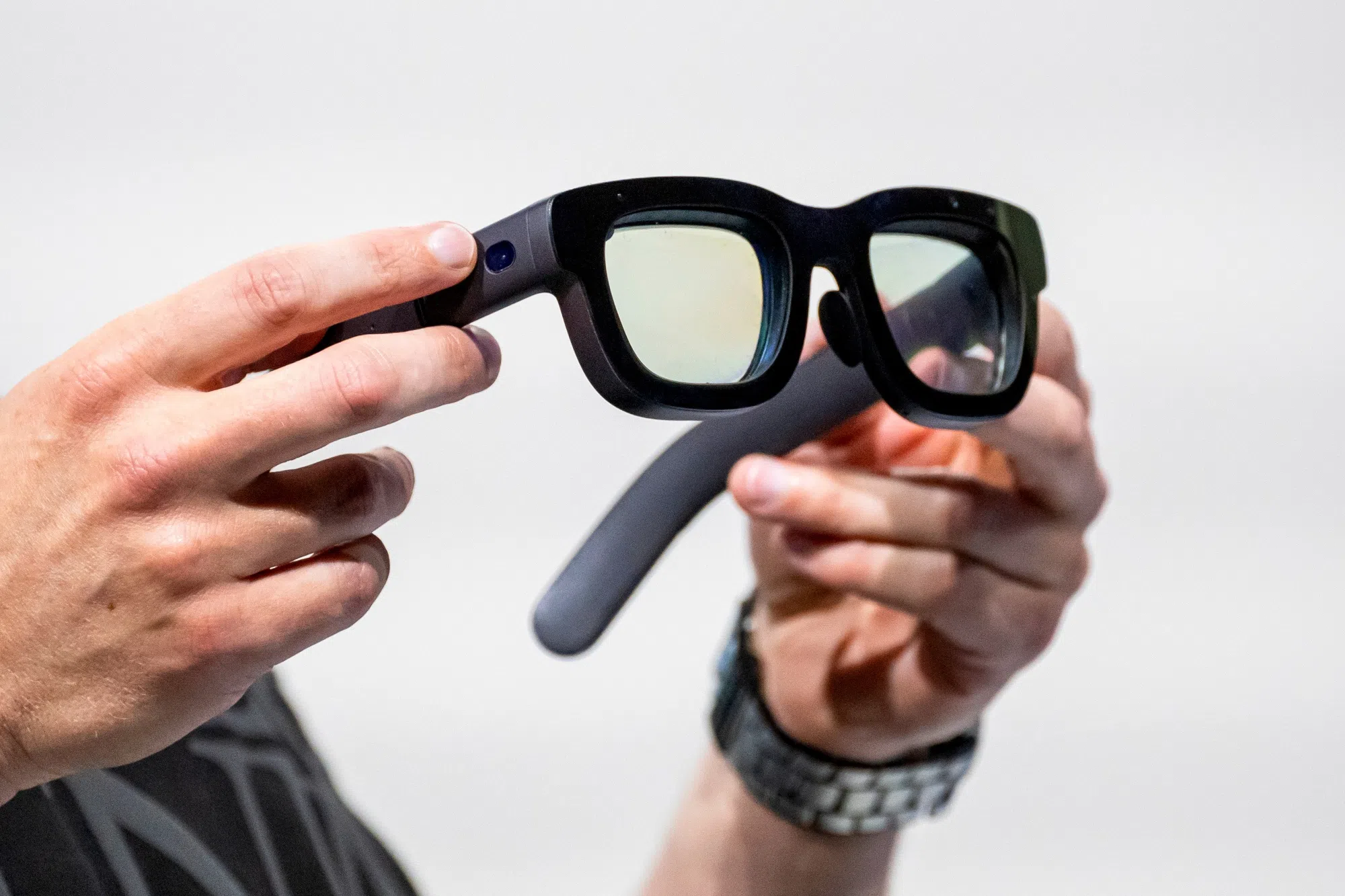META Platforms debuted its first pair of augmented reality (AR) glasses – devices that show a combined view of the digital and physical worlds, a key step in chief executive officer Mark Zuckerberg’s goal of one day offering a hands-free alternative to the smartphone.
The new glasses, introduced on Wednesday (Sep 25) and called Orion, look like thick, black reading glasses, but have lenses that can display text messages, video calls, and even YouTube videos onto the user’s field of vision. They are prototypes that are not for sale, but will be used internally at Meta for testing and improving the product.
An accompanying wristband that detects nerve stimulation and cameras built into the frames that track eye movement allow Orion wearers to “click” or “scroll” on the display using just their hands.
Meta’s chief technology officer Andrew Bosworth said he expects the glasses will become a consumer product within the next decade, adding that the next two models are in the works.
The company wants to price the glasses so “not just consumers use it, but developers want to build for it”, Bosworth said on Wednesday.
The glasses represent nearly a decade of technological advancement and significant financial investment at Meta. They also offer a glimpse into Zuckerberg’s vision for the future of technology, which has cost the company tens of billions of dollars over the past four years alone.
BT in your inbox
Start and end each day with the latest news stories and analyses delivered straight to your inbox.
Meta is already selling Ray-Ban branded smart glasses equipped with cameras and speakers, but Zuckerberg believes that AR glasses will become a kind of mobile, hands-free computer that could one day rival smartphones as the preferred way to communicate and interact online. If smart glasses eventually become mainstream, Meta hopes to be a major player in that new industry, which would also help the company reduce its reliance on competitors such as Apple and Alphabet’s Google to deliver its products to consumers.
“These things happen slowly and then kind of all at once,” Bosworth said. “When you can replace an existing use case, people can switch very quickly. Things like using augmented reality glasses to replace your phone, that’s going to take a lot longer.”
That goal is still years away despite the Orion prototype, which debuted at Meta’s annual Connect conference in Menlo Park, California. The company had hoped to make this version of the device available to the public, but executives said it’s not yet small enough or stylish enough. Those same challenges have plagued similar efforts by other tech companies over the years, including Google and Microsoft.
Snap unveiled its own pair of AR glasses earlier this month, but is only releasing them to developers.
Eventually, Meta executives believe they will be able to make the glasses thin and powerful enough that general consumers will buy them. The goal is to bring Orion to market in the “next few years” for the price of a “high end laptop or smartphone”, said Rahul Prasad, a senior director of product management at Meta.
“Any kind of prior attempt at AR has been a headset, goggles, helmets,” he said. “We want to get to glasses.”
For now, Meta will continue to build and refine the glasses internally until they are ready for public sale. Hundreds of Meta employees have been testing the Orion glasses. The company plans to expand that group considerably now that they have been debuted publicly.
Unlike competing products, such as Apple’s Vision Pro headset, Meta’s Orion glasses do not require a bulky head strap or battery pack to operate. Orion has seven cameras, including two for tracking eye movements, which allow users to control the display using visible hand gestures. Orion works best, though, when paired with an accompanying wristband, which uses electromyography to detect much more subtle hand movements so users can control the glasses with minor finger movements.
Meta designed and produced more than 10 different computer chips embedded in Orion, part of a plan to reduce energy consumption for the glasses but also to decrease the amount of heat generated so that they are not warm to the touch. Instead of glass, Orion’s lenses are made of silicon carbide, a material popular in some electric vehicles, which is lighter than glass and also helps bend light at extreme angles, Prasad said.
While using silicon carbide is a major breakthrough for Meta, Bosworth said the company is already looking for a cheaper alternative that could provide the same functionality at a lower price.
New Quest VR headset
Meta also announced a new, cheaper version of its Quest virtual reality (VR) headset, freshening its effort to persuade consumers to spend more time using virtual and augmented reality to play games, watch videos and chat with others.
The Quest 3S headset has much of the same functionality as the existing Quest 3 device but offers less memory and is several hundred US dollars cheaper. The headset will be available in stores beginning Oct 15 and will cost as little as US$300, compared to the US$500 Quest 3 devices. BLOOMBERG




